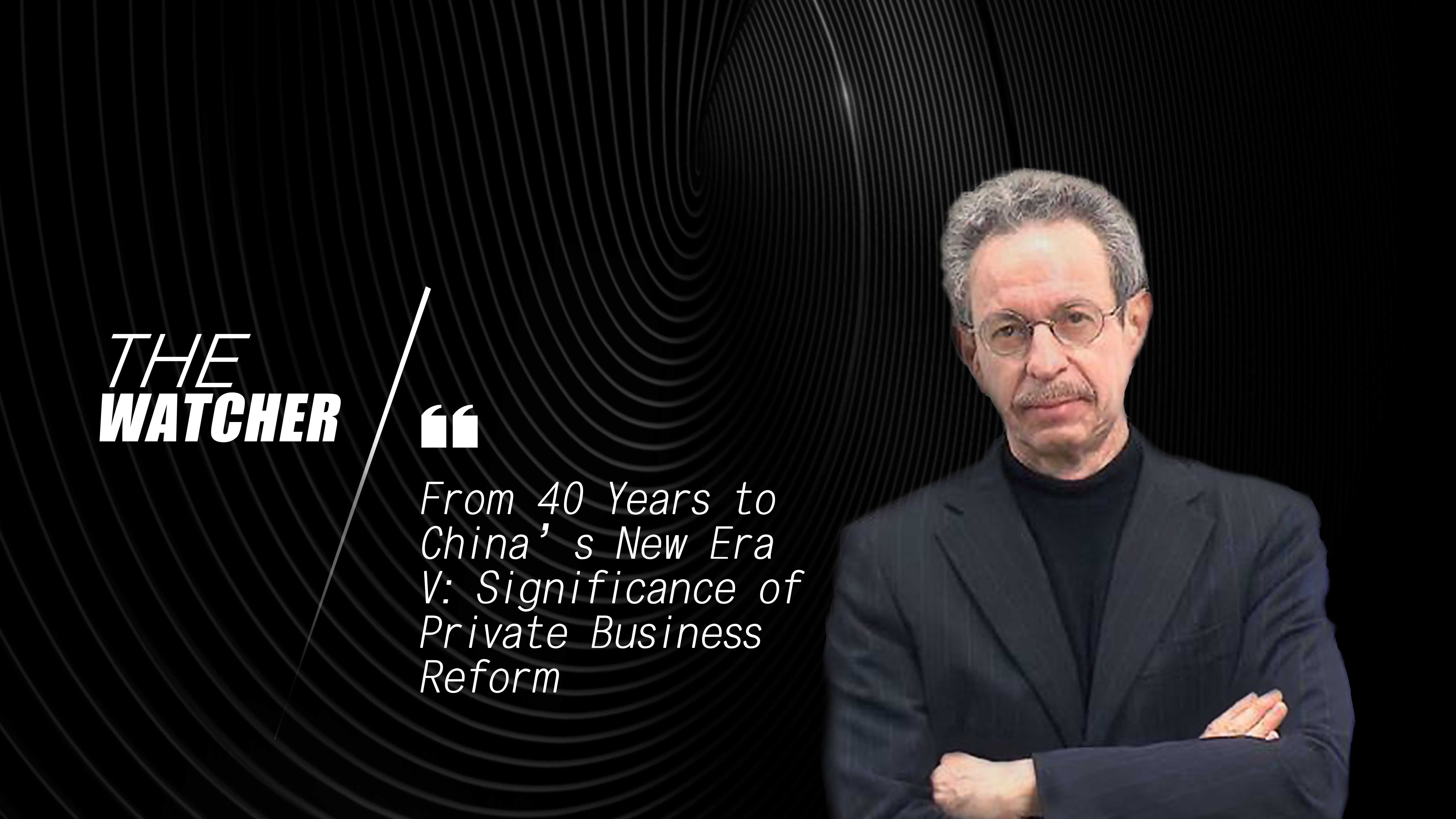
Opinions
14:51, 23-Nov-2018
From 40 Years to China’s New Era V: Significance of private business reform
Updated
16:41, 02-Jan-2019
Robert Lawrence Kuhn
03:26

I'm Robert Lawrence Kuhn and here's what I'm watching: In this 40th year of China's reform and opening up, private business — a prime driver of China's economic transformation. What lessons were learned? What challenges lie ahead?
The private business began in the mid-1980s amidst heated ideological debate. After all, private ownership seemed the antithesis of classical Marxism and socialism, where the state owned all the means of production and private business was described in the negative, euphemistically, as the “non-public sector.”
But as private companies began contributing to China's economy, growing more rapidly than state-owned enterprises, especially after 1992, restrictions on private companies continued to decrease.
In 2002, the private economy was recognized as “an important part of the socialist market economy.” In 2004, China's National People's Congress approved constitutional amendments that addressed private property rights. In 2005, private sector GDP exceeded 50 percent of the country's total GDP.
It is without dispute that private business put China on the fast-track of economic growth, and today private business makes outsized contributions to the country's economy: more than 50 percent of tax revenue, 60 percent of GDP, 70 percent of technological innovations, 80 percent of urban employment, and 90 percent of new jobs.
Private companies are more efficient in terms of returns on assets and equity; they are more creative in generating innovations and more nimble in responding to market conditions. Recently, while presiding over a symposium on private enterprises, President Xi Jinping said, "Over the past 40 years, the private sector of the economy has become an indispensable force behind China's development."
He stressed that, "Any word or action that denies, doubts or wavers over the country's basic economic system is not in line with the principles and policies of the Party and the country. All private companies and private entrepreneurs should feel totally reassured.”
Vice-Premier Liu He reiterated China's unwavering support for the private sector. Liu stressed that the viewpoint of some lenders that it was safe to provide loans to State-owned enterprises, but politically risky to loan to private businesses, "is completely wrong."
Liu emphasized that the Chinese government will ensure an equal environment for private business, intensifying the rule of law, and strengthening property rights and intellectual property protection. All good news. But I'm keeping watch. I'm Robert Lawrence Kuhn.
(If you want to contribute and have specific expertise, please contact us at opinions@cgtn.com.)

SITEMAP
Copyright © 2018 CGTN. Beijing ICP prepared NO.16065310-3
Copyright © 2018 CGTN. Beijing ICP prepared NO.16065310-3